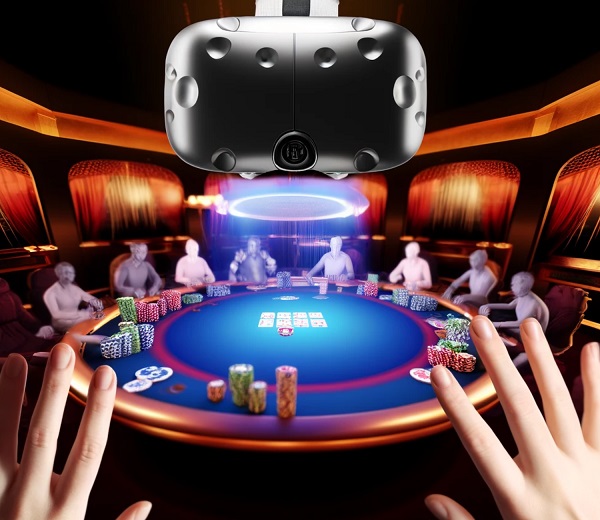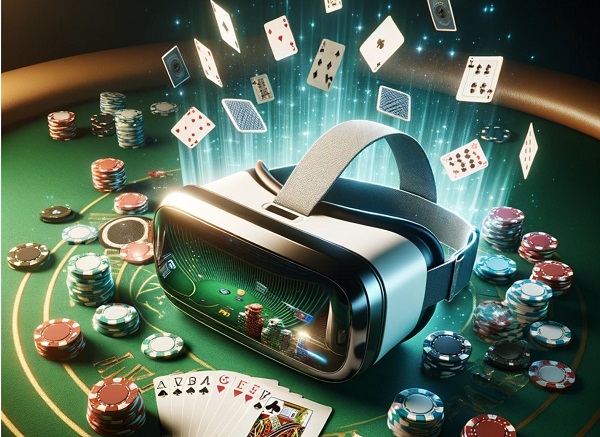In the ever-evolving landscape of technology, virtual reality (VR) has emerged as a groundbreaking platform, transforming how we experience digital content. It’s no longer just about gaming or immersive experiences; VR is reshaping educational domains, skill acquisition, and even the way we connect with hobbies and interests. Among these, the classic and intellectually demanding game of poker has found a new venue. The question that beckons enthusiasts and novices alike is, “Can you learn to play poker in virtual reality?” This intriguing possibility marries the traditional skills of poker with the innovative immersion of VR, offering a unique blend of learning and entertainment. In this article, we delve into the realms of virtual reality poker, exploring its mechanics, benefits, and the depth of realism it adds to learning the game. From virtual tells in an online poker room to handling chips and cards as if you were sitting at a high-stakes table in Las Vegas, we uncover whether VR can truly be the next frontier for mastering poker. The question that arises is: Can you truly learn to play poker in virtual reality? This exploration seeks to uncover the effectiveness and unique experience of VR poker learning compared to traditional methods.
The Basics of Poker in Virtual Reality
Virtual reality, at its core, is a simulated experience that can be similar to or completely different from the real world. It has found a significant place in gaming, providing an immersive environment that enhances the player’s experience. Poker, a game that relies heavily on skill, strategy, and a good understanding of human psychology, has found a new arena in VR. Various platforms offer VR poker games that simulate real-life environments with virtual opponents, chips, and cards.
Immersive Learning with VR Poker
VR poker offers an unparalleled immersive learning experience. Players can enter a lifelike poker room, interact with virtual opponents, and handle chips and cards as if they were at a physical table. This realistic environment engages players more deeply and aids in better retention of poker strategies and concepts. Furthermore, the psychological aspects of poker, such as reading and bluffing, can be practiced in a more nuanced and realistic manner in VR.
Advantages of Learning Poker in VR
One of the most significant advantages of VR poker is the hands-on experience it offers. Unlike traditional learning methods that may rely on theoretical study, VR allows players to learn by doing. This accessibility opens the door for anyone with VR equipment to dive into the world of poker, regardless of their location or access to physical poker rooms. Additionally, the immersive nature of VR provides insights into the emotional and psychological elements of poker, offering a comprehensive understanding of the game.
Limitations and Challenges
Despite its advantages, learning poker in VR comes with potential drawbacks. The absence of physical tells and reliance on visual cues might not fully replicate the experience of playing poker in person. Technical limitations, such as the need for high-quality VR equipment and the possibility of motion sickness, could also hinder the learning process. Moreover, the debate continues on whether VR can completely replace traditional learning methods for poker.

Real-Life Success Stories
Many individuals have successfully leveraged VR to improve their poker skills, moving from virtual tables to real-world success. Testimonials from these players highlight the effectiveness of VR as a training tool, offering encouragement to those looking to explore this modern learning method. Professional poker players have also recognized VR’s potential, incorporating it into their training routines for a competitive edge.
How to Get Started with VR Poker
For those interested in diving into VR poker, selecting the right VR headset and compatible poker games is the first step. Beginners should look for platforms that offer comprehensive tutorials and the ability to play at beginner-friendly tables. Additionally, strategies such as focusing on learning tells, practicing bankroll management, and understanding betting patterns can enhance the VR poker learning experience.
The Future of Poker Training
As technology evolves, the role of VR in poker training is expected to grow, potentially changing the landscape of how the game is learned and played. Upcoming trends and advancements in VR technology promise to further enhance the immersive experience, making virtual poker learning even more effective and engaging.
Virtual reality offers a novel and effective avenue for learning poker, blending the thrill of the game with the cutting-edge capabilities of VR technology. While it may not completely replace traditional learning methods, VR poker serves as a valuable tool for players looking to enhance their skills in an engaging and immersive environment. Whether you’re a novice hoping to understand the basics or an experienced player aiming to refine your strategy, VR poker presents an exciting opportunity to explore the game in a whole new light.
We encourage readers to share their experiences or thoughts on learning poker in VR. If you’re intrigued by the possibility of enhancing your poker skills through virtual reality, exploring VR poker platforms or apps could be your next great adventure in the world of poker.
